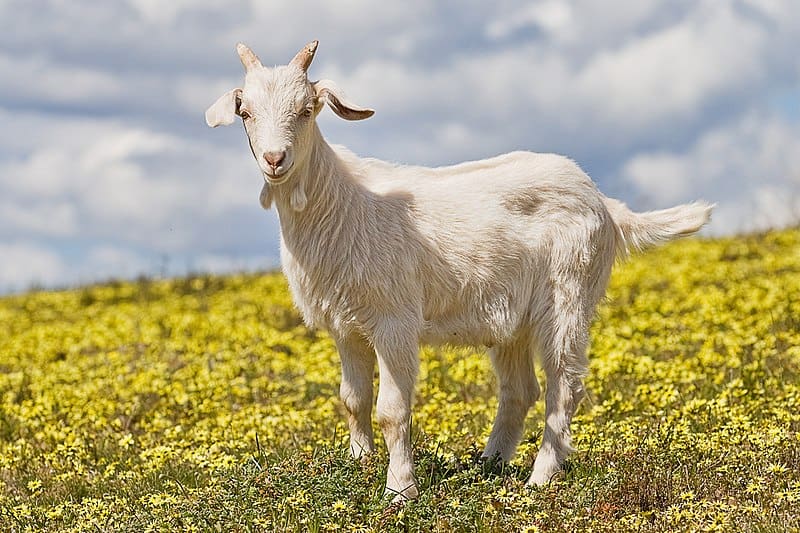Have you ever wondered what sound goats make? If so, this post will grant you all the answers.
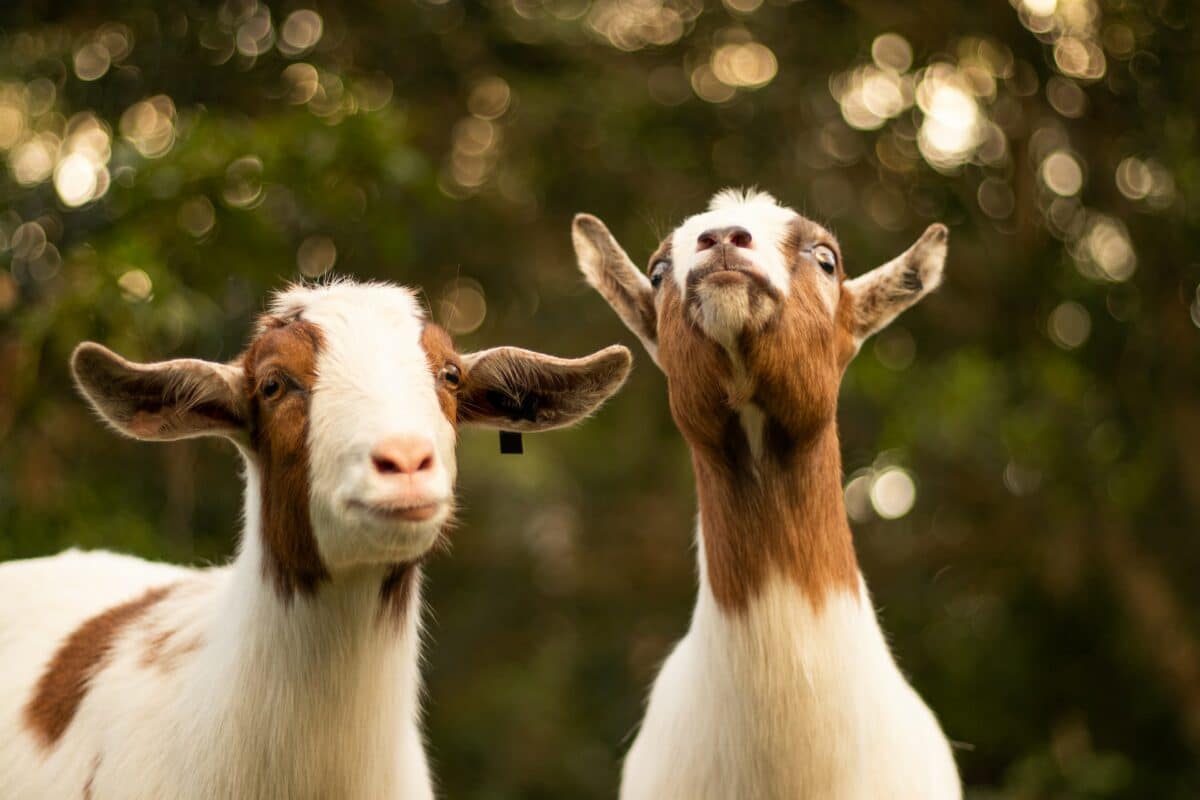
Goats are popular farm animals, but some individuals have started keeping them as pets. These animals are interesting to watch both in captivity and in the wild. Goats were first domesticated about 10,000 years ago somewhere in Central Asia.
Their wild ancestor, the gasang, is closely linked to today’s ibex. Goats are bred for their meat, milk, leather, and even their fur, all around the world. There are around 300 different breeds of goats, each with its specific features.
These furry animals stand out with the peculiar noises they make. Although they may all sound the same to our ears, they differ depending on what the goat is trying to communicate. It allows other goats to understand what a goat is saying.
So, let’s get to know the goat a little bit better and how they communicate!
What Is a Goat Sound Called?
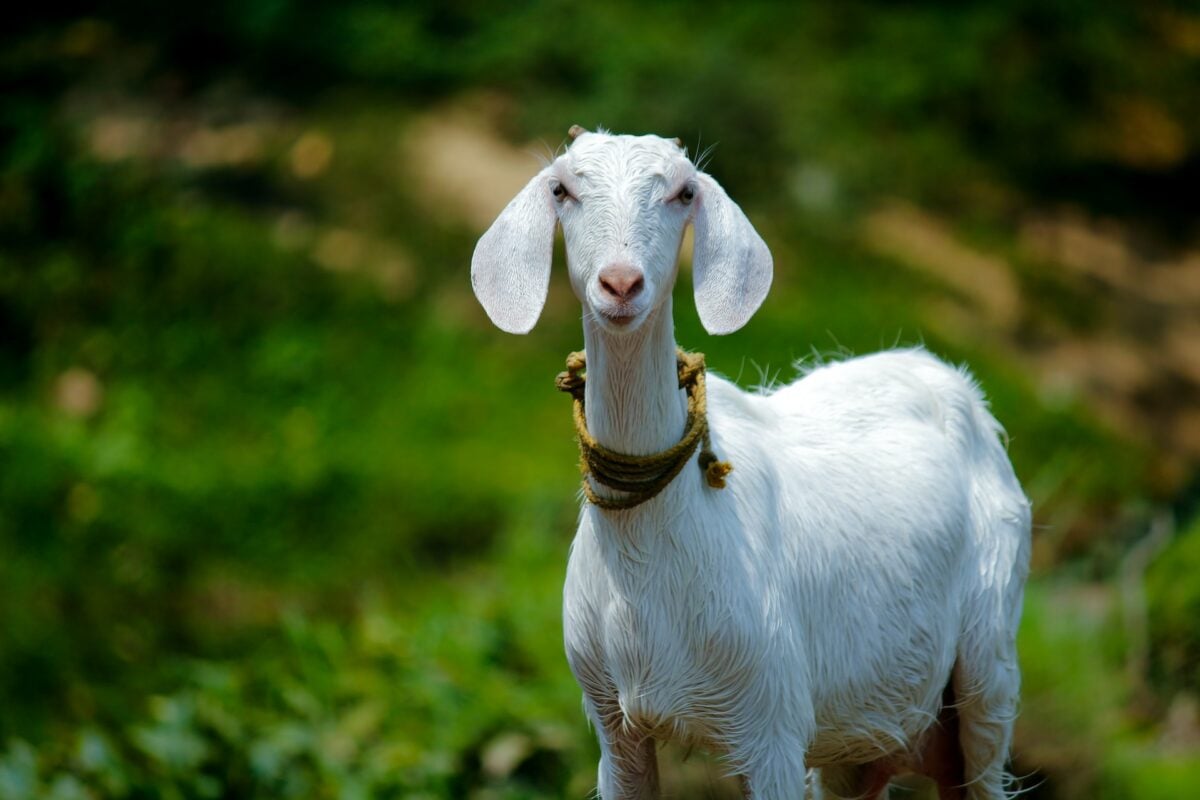
Some people believe that each goat’s sound is unique. If you want to figure that out, you’ll need a lot of experience with goat keeping. The sound a goat makes is called a bleat or baa. It has Baa, Maa, and Meh-like tones.
The spelling of the goat sound varies from language to language. Inexperienced ears can think that all goat sounds are the same. However, the sounds vary depending on the message the goat is trying to convey.
For example, goats snort-bleat to alert others to potential danger. They also make different sounds when they are excited or joyful. Furthermore, kids make specific sounds when they cry for their mothers. As you can see, goats make various sounds to express different emotions – as humans do.
Do Goats Have Accents?

Just as people from different parts of the world have different accents, so do goats. A goat living in the Appalachian Mountains will not sound like a goat in your yard. The location and breed of the goat are the main determining factors.
Their bleating might be louder, more prolonged, or have more cadence. Although nobody claims to be an expert on goat communication, it appears that most of them can communicate with one another. The inflections and duration of a bleating goat distinguishes it from a goat from another region.
Which Goat Breeds Are the Quietest and Loudest?
The majority of goat owners agree with this list of goat breeds. This is not a rule because the goat’s individual behavior also plays a significant role. Keep this list in mind if you plan to expand your herd of goats.
Quietest Goat Breeds
- Toggenburg
- Lamanachas
- Alpines
- Boers
Loudest Goat Breeds
- Nubians
- Nigerians
What Do Different Goat Sounds Mean?
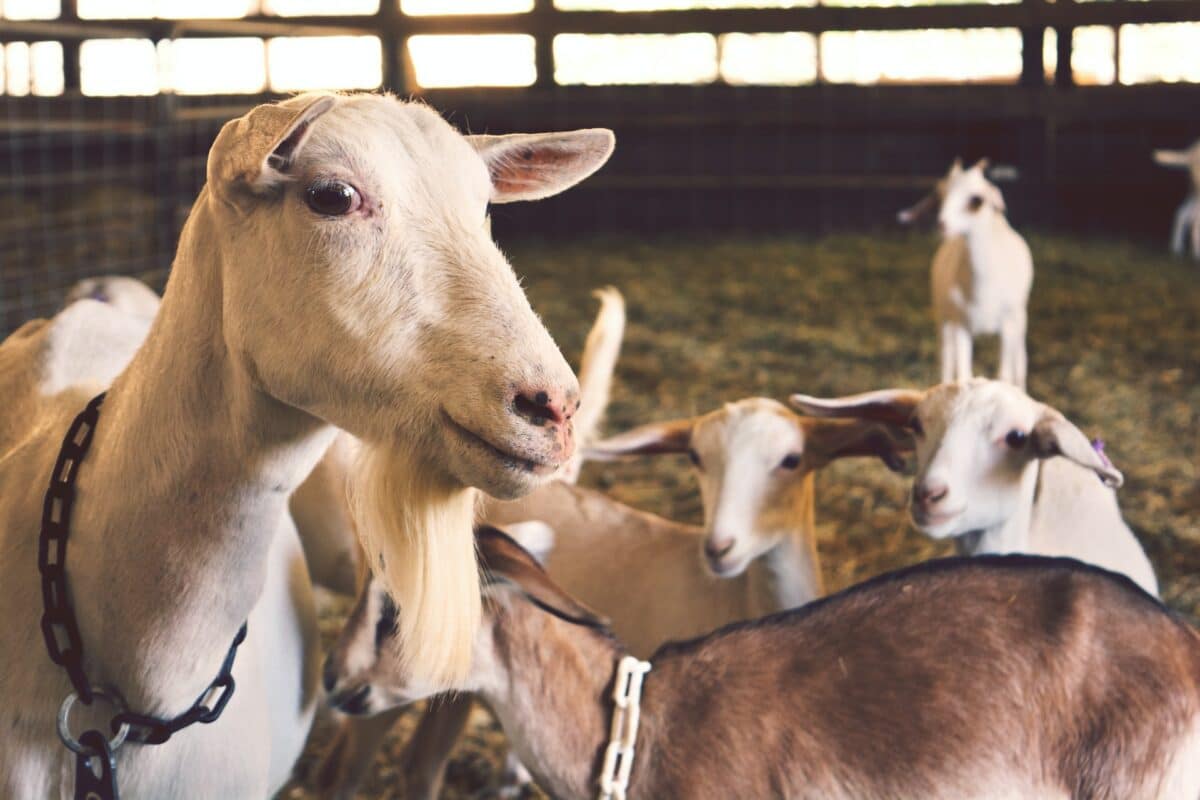
Goats have a wide variety of bleats that they use to communicate with their fellow animals. If they’re domesticated, they may even use noises to seek the help of their caretaking farmers.
The goat bleats can vary in several ways, including loudness, pitch, and depth. It depends on the specific purpose for which they are bleating.
#1 Goat Danger and Alarm Sound
If a goat is in dire need or danger, the intensity of its bleat may increase. This is similar to a human crying louder if they needed help.
Their depth or pitch may also reflect this; for example, a higher pitch may imply even more urgency. Goats also create a snorting-like bleat to warn other goats of potential threats.
#2 Goat Thirst And Hunger Sound
Goats don’t always bleat when they’re in danger. Fortunately, such situations are much more infrequent. Overall, they make a variety of bleats for many reasons and a range of baas for new demands.
They might ask other goats or farmers for food because they are hungry. Similarly, they may feel thirsty. Therefore, they will be bleating for water using their specific sounds.
#3 Goat Discovery Sound
Goats often share something they’ve discovered with other goats through bleating. They can bleat if they find a tasty grass patch to nibble or graze on.
Otherwise, they might have discovered a new stream. They will change their bleats in various ways to communicate their discoveries. It helps to highlight the importance of what they have discovered.
#4 Goat Mating Sound
Goat matchmaking is also a thing. Accordingly, goats have specific bleats that help them attract and court a mate for mating.
If a male goat sees a female he likes, he will rush up to her. Following, he will make a grumbling bleat. They express their demands with an in-depth but low pitch.
#5 Goat Family Bleat Sounds
There is a bleating pattern that families employ, particularly with baby goats. Young goats can recognize their mother’s bleats right away. It helps to build their connection and can be beneficial for multiple reasons.
For instance, if a child is out of sight from its mother, its mother may scream in a distinct bleat. The child is quickly able to hear and locate their mother. The mother may also communicate coded warnings to her baby through their bleats. It may alert them of dangers and the like.
It’s interesting to note that a goat’s environment has an impact on its bleats. Children who are all reared together actually have more similar bleats. This is similar to a human’s accent.
Our accents vary depending on where and with who we spend the most time with. For goats, it is the same. They develop a unique bleating style based on their surroundings.
#6 Goat Loneliness Sound
Goats enjoy living in herds. Like people, they crave interaction and companionship with others. This is why you could have noticed a lone goat scream-bleating.
However, you don’t need to be concerned about this. The goat most likely wants some companionship because they are lonely. If you ever find a lone domesticated goat loudly bleating to itself, it’s best to find other goats to keep it company.
#7 Sick Goat’s Bleating
You can tell when a goat is sick because its sounds differ from those of a healthy goat. Goats in good health have a lot of energy and are playful. Short, playful bleats are common among healthy goats.
But they’ll bleat louder and longer when they’re unhappy or ill. Although these might be minor symptoms, they can indicate a bigger problem.
What Does a Baby Goat Sound Like?
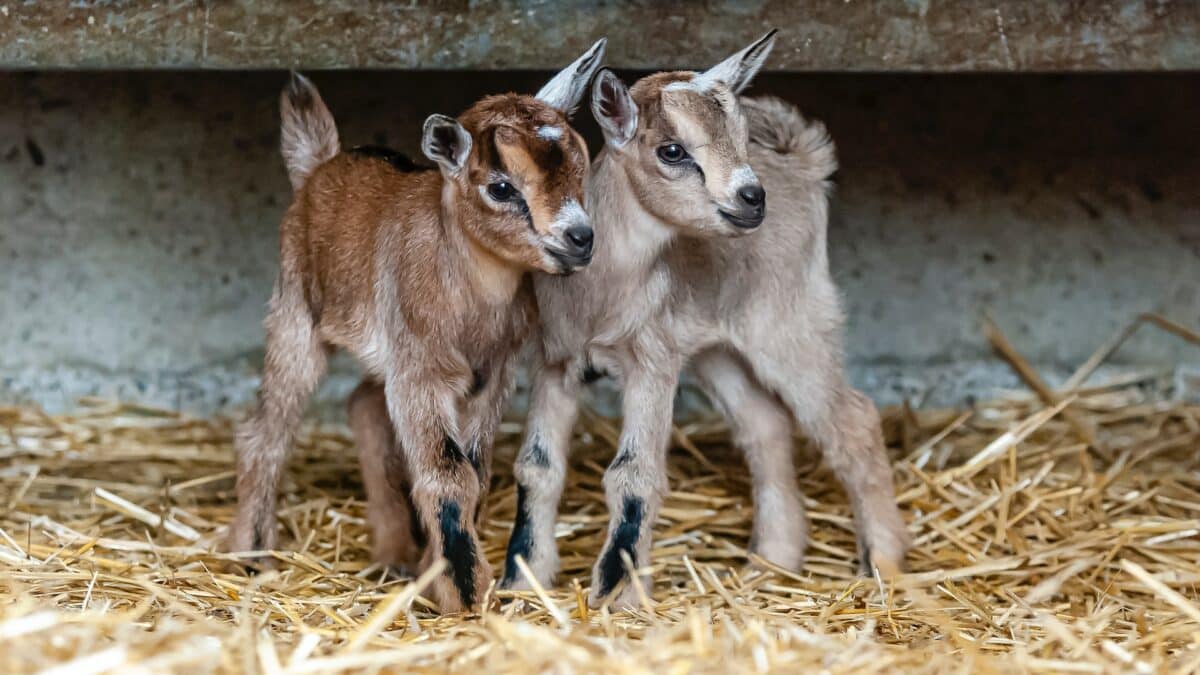
Are you unsure whether the noise from your barn is from a goat or a cat? A baby goat’s bleat doesn’t sound too different from a cat’s noise. Young goats are termed as kids. They make a bleat that initially seems weak, but soon enough, it changes as they age and transforms into a ‘baa.’
What Does a Pygmy Goat Sound Like?
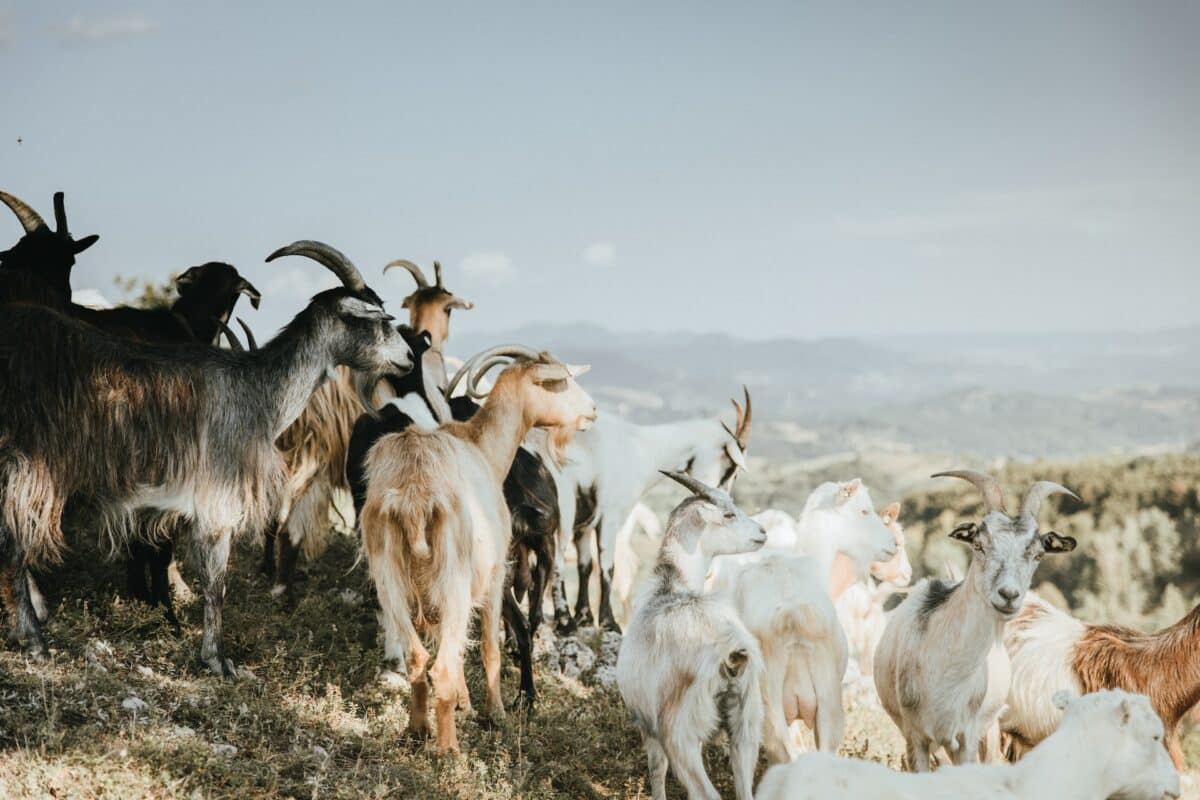
A Pygmy goat is the cutest animal you will ever see. They are little and quite adorable. However, they often sound as though they are complaining about something. Pygmy goats enjoy interacting and playing with people as well.
Do Goats and Sheep Make Similar Sounds?
While sheep usually “baa,” goats tend to bleat instead. They can be extremely loud and aggressive, much like mules and donkeys. Additionally, they may bleat wildly to express their anger or dissent. While sheep also express a wide range of emotions through vocalizations, they are overall quieter when compared to goats.
Are Goats Noisy at Night?
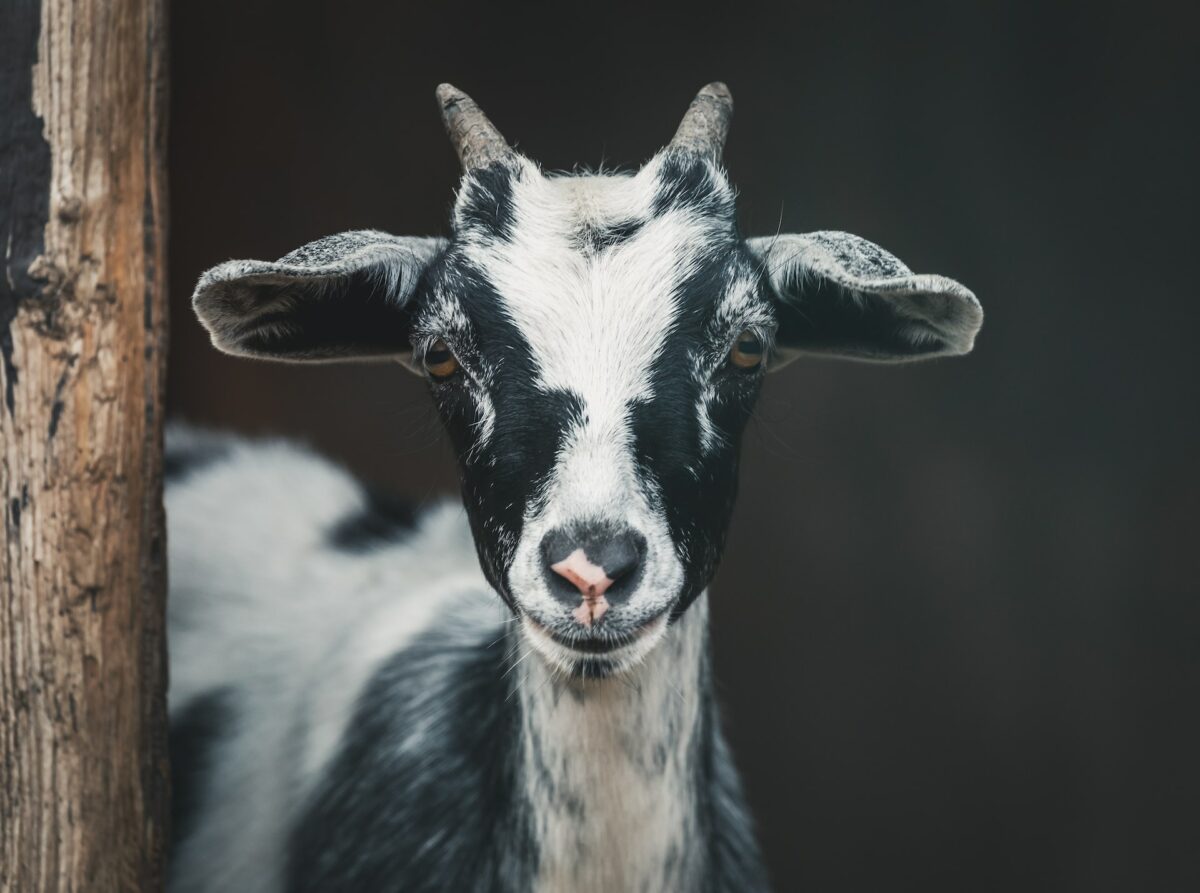
Unless they’re grumbling about their living conditions, goats shouldn’t make lots of noise during nighttime. If they do, it’s usually because they are hungry, lonely, or afraid. It can also be due to a predator in the vicinity. However, some goats will protest simply because the weather is bad.
Why Do Goats Scream?
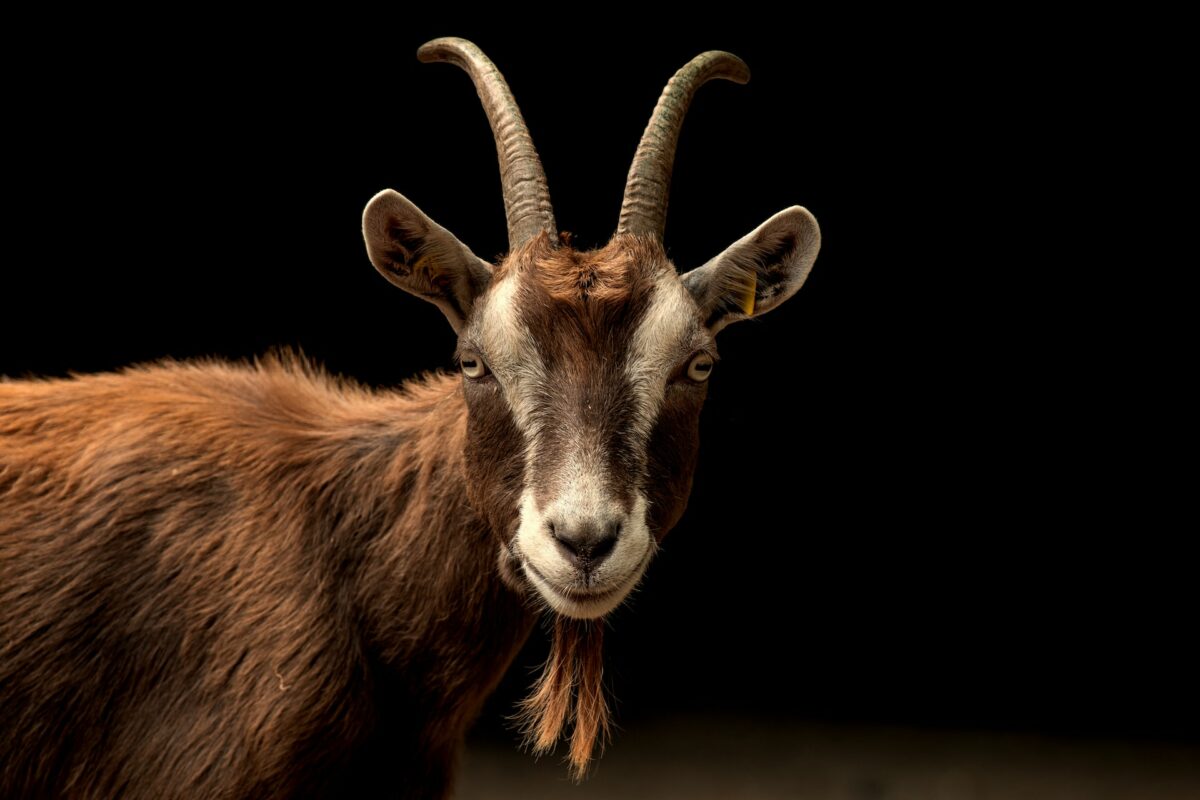
Goats use “bleating” as a form of communication. They also bleat to show impatience. In times of fear or even boredom, they use it to interact with one another. Goats can communicate in a variety of tones, much like humans can.
The bleat of some goats may be louder than that of others. Sometimes, this may sound like a person screaming or yelling. Let’s examine some of the most frequent causes of your goat’s bleating in more detail.
Causes for Goats’ Bleating
#1 Contact Call
Contact calls are useful to keep the herd together. The herd becomes more anxious as contact calls become louder and more frequent.
When herds are physically separated, they tend to make contact calls. However, they can still hear one another. Typically, this bleat is brief, low-pitched, and peaceful.
#2 Distress Call
A distress call indicates that things are getting serious. The low-pitched bleats will change into high-pitched wild screams if a goat breaks from its herd. A goat might get either totally or partially isolated.
The goat will shout to let the other goats know it is afraid if it is partially separated. Moreover, the goat will hop around and be very active. It makes every effort to reunite with its herd.
#3 Intense Emotions
Goats frequently bleat when scared or surprised. A goat attacked by a predator will scream to show how anxious it is. According to specialists, goats don’t just bleat out of fear. They also want to warn the herd that danger is approaching quickly.
The herd remains on high alert and in close proximity as a result. Additionally, goats shout when they are happy or excited. When a goat sees you, it could bleat to show its affection.
It may also bleat in excitement when reunited with an isolated goat. The same thing happens when you give your goat a treat – it will bleat to let you know how it feels.
#4 Impatience
One of the most typical causes of continuous screaming is impatience. Goats expect to receive their daily meal at the same time. Goats are incredibly intelligent despite their appearance.
They will remember the food you gave them yesterday and at what time. As a result, they will reach out to you to get their meal. They will begin bleating to get your attention if you are not on time.
Moreover, the polite bleating will soon turn to loud screaming if you’re late. The goat’s screams will grow louder as it becomes more frustrated.
#5 Boredom
Goats can only survive in herds. A solitary goat will not die of loneliness. However, it will become depressed and might stop eating. This is not to say that goats in herds aren’t prone to boredom.
A tiny shelter with grass and fences will cause the goats to get bored and restless. The goats are likely to become bored and worn out in a smaller pen. Goats will attempt to bleat loudly to tell the owner that they need more space to roam around.
You can try adding some climbing structures if you think they’re feeling lonely.
#6 Pain
When goats are in pain, they usually have the most intense bleating.
It is extremely concerning when a goat begins to bleat out of pain. Especially if it’s bleating at an unusually high volume or during a strange time of the day; take your goat to the vet for a quick health checkup if this is the case.
Additionally, goats bleat when they are injured. Therefore, it is wise to examine your goat for any injuries, bruises, or fractured bones.
#7 Hormonal Fluctuations
Hormones play a key role in vocalization. Goats experience deep mood swings during the heat cycle because of hormonal changes. For instance, male goats shake their forelegs and scream when mating. This is referred to as “buck screams.”
Similarly, when female goats are in heat, they scream a lot. The pitch and loudness vary widely among various breeds. Some females have a quiet, gentle bleat. While some shout loudly and in a high pitch. If a female is confined away from a male she likes, she will often scream the loudest. The male will also scream a lot if he feels like he isn’t getting enough attention.
#8 Pregnancy
Pregnant goats bleat a lot for a variety of reasons. Hormonal changes are mostly responsible for this. Meanwhile, females also bleat at their unborn children to make them aware of their voices.
Baby goats bleat at their moms for attention after birth. Meanwhile, the mother gets to know the sound of her baby’s bleat. In fact, mothers can recognize their baby’s bleating for up to 13 months after separation.
Wrapping Up
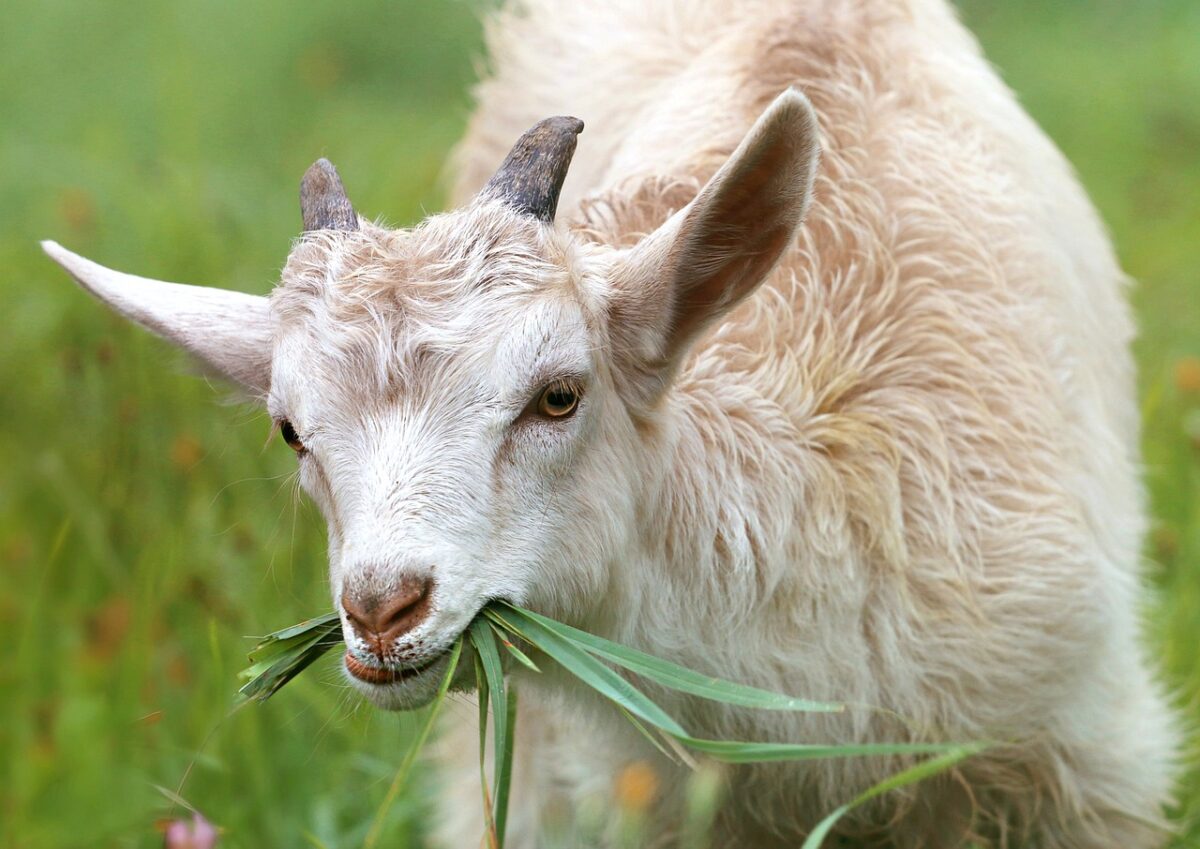
Summary:
| 1 | Goats are very friendly creatures, with over 200 breeds domesticated worldwide today. |
| 2 | The sound of a goat is specifically referred to as bleating. Goats bleat to communicate their emotions. |
| 3 | Goats make different sounds when they are happy, sad, angry or distressed. |
| 4 | Initially, one can think that all goats make the same sound, but in fact they have different accents depending on where they live. |
| 5 | The loudness, intensity and pitch of the bleat depend upon the situation. |
| 6 | You can reduce the unnecessary loud bleating by making them feel safe and keeping them together in a herd. |
Goats are friendly, intelligent, yet easily irritated creatures. They are very vocal creatures. Therefore, they often use their usual loud bleats to convey their feelings.
A bleating goat may not always be seeking help. Either it’s trying to keep the herd together, or it might just be bored. Once you know what the goats want, it’s simple to stop the constant yelling. Additionally, a regular feeding schedule and limited stress may reduce excessive bleating.
It’s impossible to keep goats from conversing with one another. However, if your herd feels safe and secure, you can easily reduce the noise they make. Therefore, try to keep them active and together to prevent unnecessary bleating.
Thank you for reading this article! If you want to know more about goats, read our post on the Alpine Goat or the Baby Goat.
- Magpie Bird Is Reunited with Her Dog Best Friend - April 24, 2024
- Dog Saves Another Dog From Drowning in Fish Pond - April 23, 2024
- Man On Motorbike Rescues Cat From Highway - April 23, 2024

